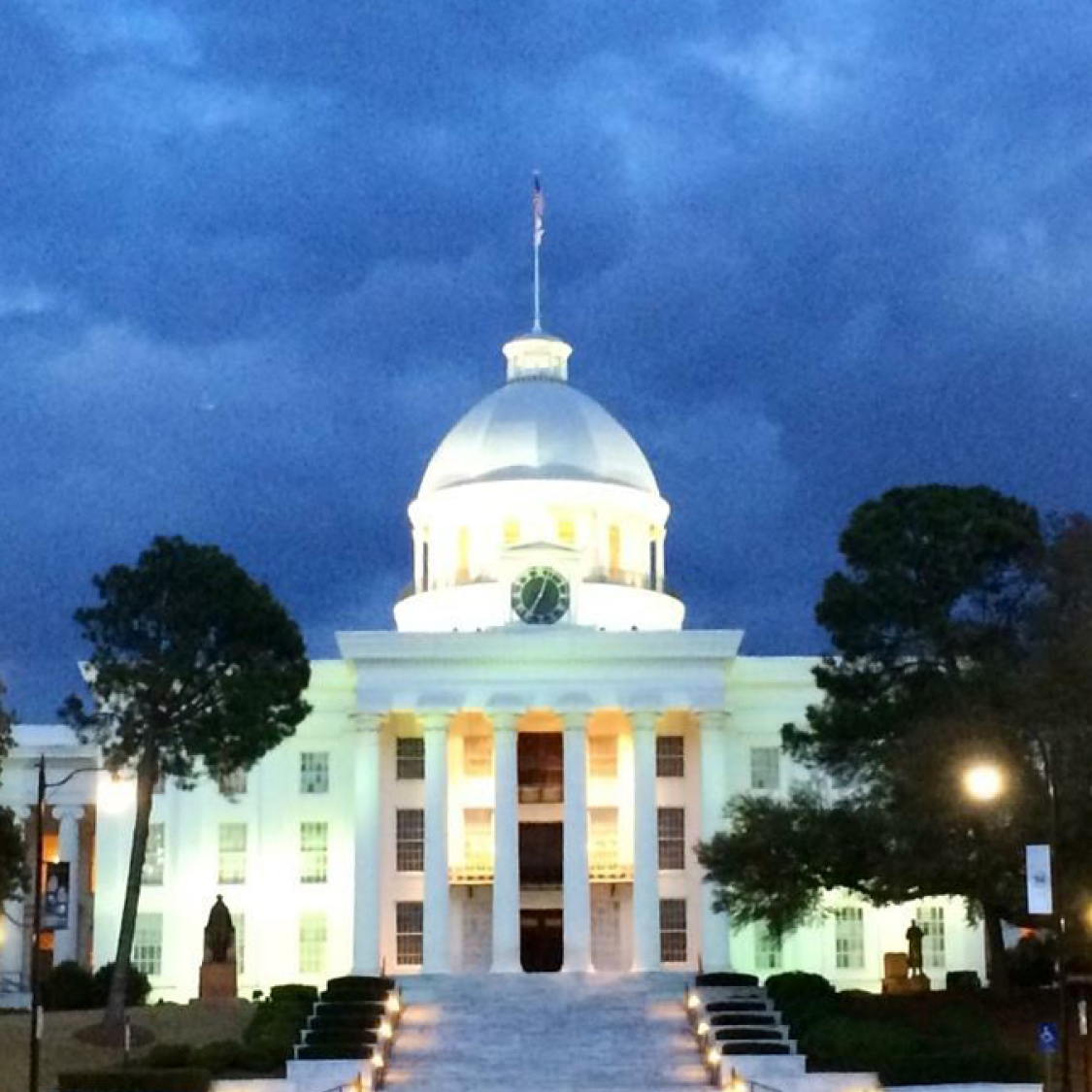Governor Ivey signed three major pieces of legislation on Friday:
Economic Development Incentives that would extend two important economic development programs to attract business to the state. HB192, sponsored by Representative Bill Poole and Senator Greg Reed, would renew the Alabama Jobs Act and extend the incentives through July 31, 2023. The bill would provide additional incentives for critical supply chain companies and underrepresented businesses. The Jobs Act cap will increase from $300 to $325 million in 2021 and $350 million in 2022. In addition, the bill will renew the recently expired Growing Alabama Act, which allows tax credits for contributions to economic development organizations. The cap for the Growing Alabama program will expand from $10 million to $20 million per year.
COVID Liability Protections that would provide civil liability protection for businesses and other entities in COVID-related lawsuits, provided the entity took proper COVID precautions. Senator Arthur Orr’s bill, SB30, would provide a safe harbor for many organizations unless reckless or intentional misconduct can be proven. The bill attempts to strike a balance between businesses impacted by the economic effects of the pandemic and front-line workers at risk of contracting the virus on the job.
COVID/Stimulus Tax Reform that would exempt federal COVID stimulus aid, including direct payments to individuals and loan forgiveness benefits to businesses under the Paycheck Protection Program, from state income taxes. HB170, sponsored by Representative Danny Garrett and Senator Dan Roberts, would not only apply to federal relief disbursed in 2020 but was amended to also include any federal relief approved in 2021. Additionally, HB170 makes several changes to the corporate tax income structure in the state, including the following:
- For most industries, converts our apportionment formula to a single sales factor from the current double-weighted sales factor, effective January 1, 2021.
- Repeals the throwback rule not only for sales from in-state facilities to private sector customers in other states, but also sales to the U.S. Government.
- De-couples (retroactively) from the TCJA’s Section 118 amendment taxing new or expanding industries on contributions made by the State or a local government in aid of construction of their plant, access roads, etc.
- De-couples (retroactively) from the TCJA’s Section 951A “GILTI” rules with respect to income from non-U.S. intangibles such as royalties.
- Implements a taxpayer favorable approach to the Alabama equivalent of the IRC Section 163(j) business interest limitation. The amendment allows members of a Federal consolidated group subject to Alabama income tax (even if they do not file an Alabama consolidated return) to offset one member’s business interest expense against another member’s business interest income to achieve a net amount that is then tested under Section 163(j)(1)(A). The bill does not de-couple from Section 163(j) as some other states have done.
- Establishes a new alternate tax regime applicable only to electing partnerships/LLCs treated as pass-through entities and to S corporations.
Other legislative issues considered last week
5G Infrastructure
The House unanimously passed legislation Thursday that would create a statewide permitting standard for 5G infrastructure deployment. Senator Arthur Orr’s “small cell” bill, SB76, would create a uniform permitting system throughout the state and a timeline for approval to expedite the rollout of 5G-related technology (small cells). SB76 was sent to Governor Ivey’s desk Thursday.
Rental Assistance
The Senate unanimously passed legislation Thursday that would appropriate an estimated $263 million in federal FY21 omnibus funding to administer the Emergency Rental Assistance Program. The program is designed to assist eligible households unable to pay rent and utilities due to the pandemic. Representative Steve Clouse’s bill, HB231, was passed by the House last week and was sent to Governor Ivey’s desk Thursday.
Gambling
Senator Del Marsh introduced legislation Thursday that would establish a statewide education lottery and five casinos with table games, sports betting, and slot machines. The bill creates a lottery corporation and gaming commission. As drafted, state revenue generated by the gaming taxes and fees would be distributed primarily to the General Fund for the expansion of broadband and the provision of rural health/mental health services. The Senate began debate on SB214 but is not expected to vote until after next week’s break, which will allow time for Marsh to tailor the bill. A constitutional amendment approved by Alabama voters would be required to make the change.
Broadband
Senator Marsh also introduced legislation Thursday intended to facilitate the expansion of broadband statewide. SB215 would create a new authority to oversee and implement the expansion of high-speed internet throughout the state. The authority would be responsible for administering state grant programs and would also have the authority to issue bonds of up to $250 million to finance eligible projects. Much like the gambling bill, SB215 was carried over until after next week’s break.
Military Stability Commission legislation: This package of bills below is positioned to pass during the week of February 23rd.
- Tall Structures Bill- Butler
- Speech and Language Compact- Coleman-Madison
- Psychology Compact- Jones/Rafferty
- Physical Therapy Compact- Whatley/P. Moore
- Troops to Teachers- Jones/McMillan
- Medical License for Military members- Chesteen
- Maxwell Charter- Barfoot/Collins
- In-State Tuition Continuity- Whatley/Lovvorn
- Armory Commission Diversity- Whatley/
- Military Stability Commission Diversity- Smitherman/Hatcher
- Disabled Veterans Lifetime Hunting License- Barfoot/Whitt
- State Active-Duty Death Benefit for National Guard- Whatley
- AL National Guard Tuition for Dependents (No new appropriation/program capped)- Whatley



